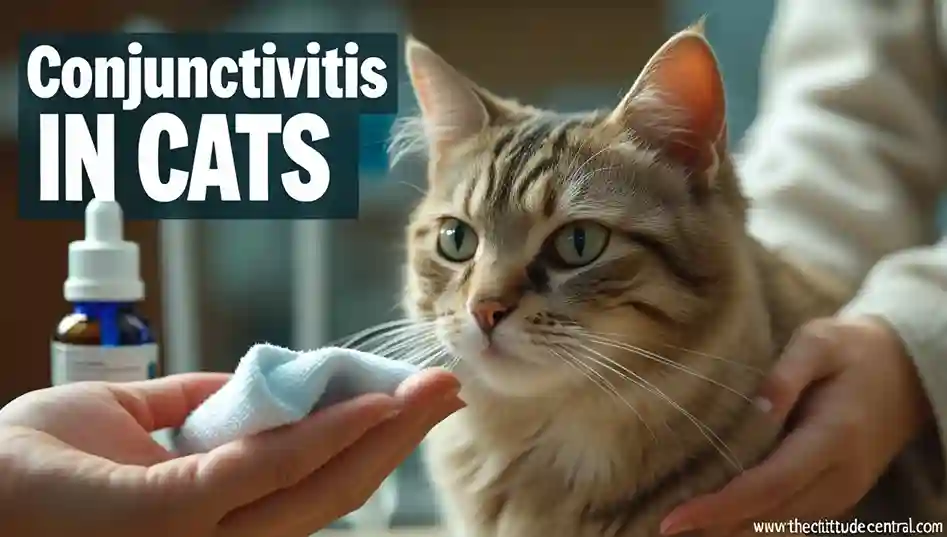When your feline friend is unwell, finding the right treatment is crucial. Albon for cats is a commonly prescribed antibiotic that tackles bacterial infections and certain parasitic conditions, such as coccidiosis, in cats.
This comprehensive guide explores how Albon works, its applications, proper administration, potential side effects, and expert tips to ensure your cat’s well-being. Whether you’re a first-time cat owner or a seasoned pet parent, understanding Albon can help you make informed decisions about your pet’s health.
This article also incorporates insights from veterinarians, product recommendations from Amazon, and answers to frequently asked questions based on recent Google Trends data. Let’s dive into the details of this essential feline medication.
What is Albon for Cats?
Albon for cats is a brand name for sulfadimethoxine, a sulfa-based antibiotic used to treat bacterial and parasitic infections in felines. It is particularly effective against coccidiosis, a parasitic infection caused by coccidia protozoa, which can wreak havoc on a cat’s digestive system. Albon works by inhibiting the growth of bacteria and parasites, allowing your cat’s immune system to fight off the infection more effectively.
How Does Albon Work?
Albon disrupts the production of folic acid in bacteria and parasites, a critical component for their survival. By blocking this process, Albon for cats prevents the pathogens from multiplying, giving your cat’s body a chance to recover. It is commonly prescribed for:
- Coccidiosis: A common intestinal parasite in kittens and young cats.
- Bacterial infections: Including urinary tract infections (UTIs), respiratory infections, and skin infections.
- Other protozoal infections: As determined by a veterinarian.
Veterinarians often recommend Albon for cats due to its broad-spectrum efficacy and relatively safe profile when used correctly. However, it’s only available through a prescription, so consulting a vet is essential.
When is Albon Prescribed for Cats?
Veterinarians prescribe Albon for cats in specific scenarios where bacterial or parasitic infections are confirmed or suspected. Here are some common conditions treated with Albon:
Coccidiosis in Cats
Coccidiosis is caused by microscopic parasites called coccidia, which infect the intestinal tract. Kittens, especially those in shelters or multi-cat environments, are particularly susceptible. Symptoms include:
- Diarrhea (sometimes bloody)
- Weight loss
- Dehydration
- Lethargy
Albon for cats is a first-line treatment for coccidiosis, as it effectively targets the parasite while being gentle on your cat’s system when dosed appropriately.
Bacterial Infections
Albon for cats is also used to treat bacterial infections such as:
- Urinary Tract Infections (UTIs): Albon can address bacterial growth in the bladder or urinary tract.
- Respiratory Infections: It may be prescribed for upper respiratory infections caused by susceptible bacteria.
- Skin Infections: Certain bacterial skin conditions respond well to Albon.
Your veterinarian will perform diagnostic tests, such as fecal exams or bacterial cultures, to confirm the need for Albon for cats before prescribing it.
How to Administer Albon for Cats
Administering Albon for cats correctly is vital to ensure its effectiveness and your cat’s safety. Albon is available in two primary forms: oral suspension (liquid) and tablets. Here’s a step-by-step guide to giving your cat this medication:
Dosage Guidelines
The dosage of Albon for cats depends on your cat’s weight, age, and the condition being treated. A typical dosing schedule for coccidiosis is:
- Initial Dose: 25 mg/lb of body weight on the first day.
- Maintenance Dose: 12.5 mg/lb daily thereafter, for 5-20 days, depending on the infection’s severity.
For example, a 10-pound cat would receive an initial dose of 250 mg, followed by 125 mg daily. Always follow your veterinarian’s instructions, as improper dosing can reduce effectiveness or cause side effects.
Administration Tips
- Oral Suspension:
- Shake the bottle well before use.
- Use a syringe or dropper to measure the exact dose.
- Gently insert the syringe into the side of your cat’s mouth and slowly release the liquid.
- Reward your cat with a treat to make the experience positive. Consider the PetSafe Lickable Treats available on Amazon, which are soft and easy to administer post-medication.
- Tablets:
- Hide the tablet in a pill pocket or soft treat. The Greenies Feline Pill Pockets on Amazon are a popular choice for cats.
- If your cat refuses treats, use a pill popper (available on Amazon) to place the tablet at the back of their throat, then gently hold their mouth closed until they swallow.
- Consistency is Key:
- Administer Albon for cats at the same time each day to maintain consistent drug levels in your cat’s system.
- Complete the full course of treatment, even if symptoms improve, to prevent recurrence.
Storage Instructions
Store Albon for cats in a cool, dry place away from direct sunlight. Keep the oral suspension refrigerated if instructed by the label, and discard any unused medication after the prescribed period (typically 14 days for liquid forms).
Potential Side Effects of Albon for Cats
While Albon for cats is generally safe, some cats may experience side effects. Monitoring your cat during treatment is essential to catch any adverse reactions early.
Common Side Effects
- Mild Digestive Upset: Vomiting or diarrhea may occur, especially if the medication is given on an empty stomach.
- Appetite Loss: Some cats may eat less while on Albon.
- Lethargy: A temporary decrease in energy levels is possible.
Rare but Serious Side Effects
- Allergic Reactions: Signs include swelling, difficulty breathing, or hives. Seek immediate veterinary attention if these occur.
- Crystalluria: Albon can cause crystals in the urine, leading to urinary issues. Ensure your cat stays hydrated by providing fresh water or a pet fountain, such as the Catit Flower Fountain available on Amazon.
- Bone Marrow Suppression: Long-term use may affect blood cell production, requiring regular veterinary monitoring.
To minimize side effects, always give Albon for cats with food unless otherwise directed, and ensure your cat has access to plenty of water.
Precautions and Contraindications
Before starting Albon for cats, discuss your cat’s health history with your veterinarian. Certain conditions or situations may require extra caution:
- Kidney or Liver Issues: Cats with impaired kidney or liver function may need adjusted doses or alternative treatments.
- Pregnancy or Nursing: Albon’s safety in pregnant or nursing cats is not fully established, so inform your vet if your cat is expecting or lactating.
- Drug Interactions: Albon may interact with other medications, such as diuretics or anticoagulants. Provide your vet with a full list of your cat’s medications.
Never administer Albon for cats without a prescription, as misuse can lead to antibiotic resistance or harm to your pet.
Supporting Your Cat During Albon Treatment
To help your cat recover quickly while taking Albon for cats, consider these supportive care tips:
Hydration
Dehydration is a risk, especially for cats with diarrhea from coccidiosis. Encourage water intake with a pet water fountain, such as the Petlibro Stainless Steel Cat Water Fountain on Amazon, which promotes drinking through flowing water.
Nutrition
A balanced diet supports recovery. If your cat’s appetite is reduced, try wet food like Purina Pro Plan Veterinary Diets, which is gentle on the stomach and provides essential nutrients.
Stress Reduction
Keep your cat’s environment calm and comfortable. Provide a cozy bed, such as the K&H Pet Products Heated Cat Bed from Amazon, to help your cat rest and recover.
Regular Veterinary Checkups
Schedule follow-up visits to monitor your cat’s progress. Fecal tests may be needed to confirm the elimination of coccidia or other parasites.
Amazon Products to Complement Albon Treatment
To support your cat’s recovery while using Albon for cats, consider these Amazon products designed for feline health:
- Greenies Feline Pill Pockets
- These treats make administering Albon tablets easier by concealing the pill in a tasty pocket.
- Ideal for cats who resist medication.
- Catit Flower Fountain
- Encourages hydration, reducing the risk of urinary issues during Albon treatment.
- Features a triple-action filter for clean water.
- Purina Pro Plan Veterinary Diets Wet Cat Food
- Supports digestive health and provides balanced nutrition for cats recovering from infections.
- Highly palatable for cats with reduced appetites.
Note: Product prices and availability are accurate as of September 19, 2025, and are subject to change. Check Amazon for the latest details.
FAQs About Albon for Cats
Based on recent Google Trends data, here are answers to common questions about Albon for cats:
How Long Does Albon Take to Work in Cats?
Albon for cats typically begins working within 24-48 hours, with noticeable symptom improvement (e.g., reduced diarrhea) within a few days. Full recovery from coccidiosis may take 1-3 weeks, depending on the infection’s severity. Complete the full course as prescribed to prevent relapse.
Can Albon Cause Diarrhea in Cats?
While Albon for cats is used to treat diarrhea caused by coccidiosis, it can paradoxically cause mild diarrhea as a side effect in some cats. If diarrhea worsens or persists, contact your veterinarian.
Is Albon Safe for Kittens?
Yes, Albon for cats is safe for kittens when prescribed by a veterinarian. Kittens are prone to coccidiosis, and Albon is often the treatment of choice. However, precise dosing is critical due to their small size.
Can I Give Albon to My Cat Without a Prescription?
No, Albon for cats is a prescription-only medication. Administering it without veterinary guidance can lead to incorrect dosing, side effects, or antibiotic resistance.
What Should I Do If I Miss a Dose of Albon?
If you miss a dose of Albon for cats, give it as soon as you remember, unless it’s close to the next scheduled dose. Do not double the dose to make up for a missed one. Consult your vet if you’re unsure.
Alternatives to Albon for Cats
In some cases, veterinarians may recommend alternatives to Albon for cats based on the infection or your cat’s health needs. Common alternatives include:
- Ponazuril: Another anti-parasitic drug effective against coccidia.
- Amoxicillin: Used for bacterial infections if Albon is unsuitable.
- Clindamycin: An antibiotic for specific bacterial infections.
Discuss alternatives with your veterinarian to determine the best option for your cat.
Conclusion
Albon for cats is a powerful and effective medication for treating coccidiosis and bacterial infections, helping countless felines regain their health. By understanding its uses, proper administration, and potential side effects, you can ensure your cat receives the best care possible. Pairing Albon treatment with supportive products like those available on Amazon can enhance your cat’s recovery and comfort.
Always consult a veterinarian before starting Albon for cats, and follow their guidance to keep your feline friend healthy and happy. If you have further questions or concerns, reach out to your vet or explore reputable pet health blogs like Cats.com for additional resources.
Sources



